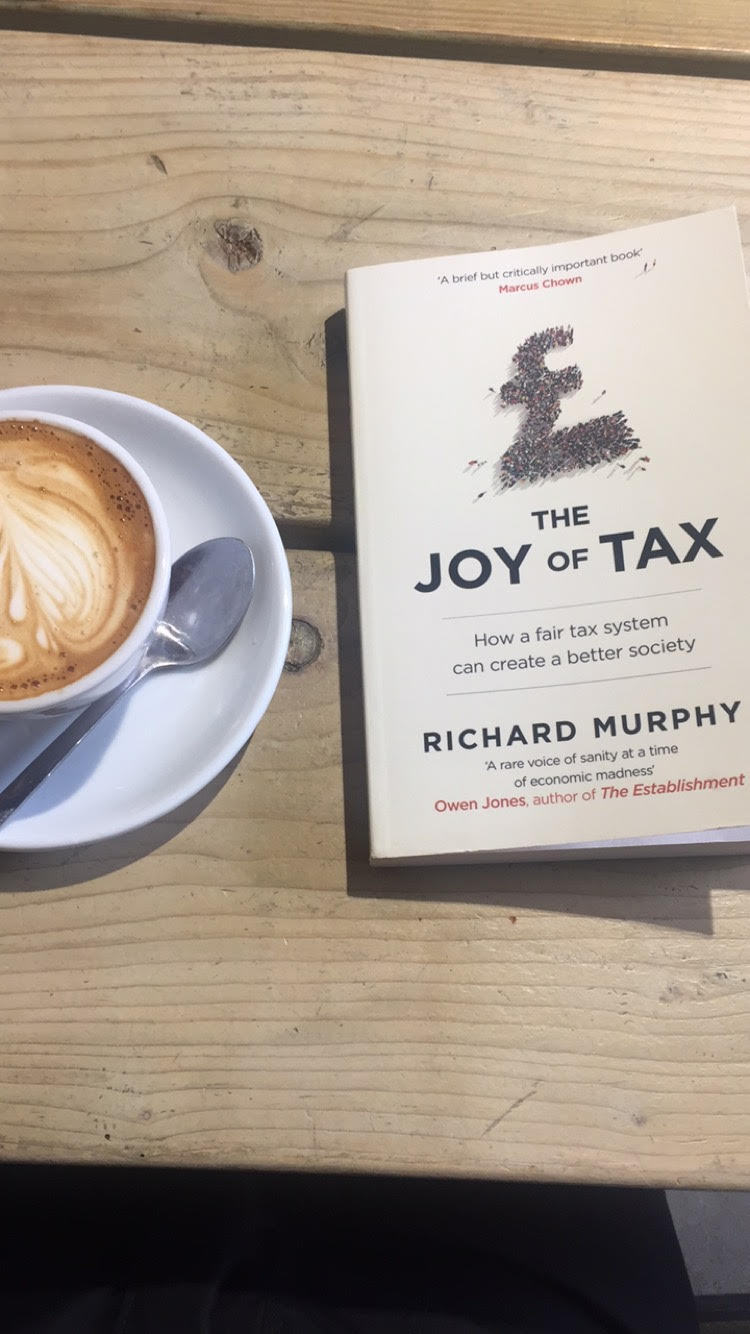Book Review: The Joy of Tax by Richard Murphy

“Tax is actually the Government's money that we sometimes hold on its behalf” – Richard Murphy
Tax is not the most riveting topic to read about. The author's work with the Tax Justice Network got my interest and I bought the book. Richard Murphy, a Chartered Accountant in the UK is passionate about this topic and the book intelligently challenges some commonly held views about tax.
Some of my favourite lines from the book are below with my thoughts:
“For most people, tax means income tax. Income tax represents only just over a quarter of all taxes paid in the UK.”
Where does the rest come from, you may ask? Income tax is the highest contribution followed by National insurance contributions, Value added tax & Corporation tax (based on the 13/14 tax year). Besides this, there are over twenty-seven categories of tax including Swiss capital tax and Climate change levy.
On money creation:
“The reality that is now accepted to be true by the Bank of England is that all money is created by banks making loans.”
“Money is created by a stroke of a pen or some taps on a computer keyboard. There aren’t any physical processes involved.”
Money is created ‘out of thin air’ as Richard refers to it. The whole section on money creation was quite fascinating. I also learned about the chicken-egg scenario - governments don’t necessarily raise taxes to spend, they spend first and then reclaim the money already spent.
On Education
“Indeed, tax is at the heart of our society. But we do not talk about it, and we do not teach it, and that is little short of a national scandal.”
I agree that our general financial literacy is poor on practical money matters or personal finance. Many of us, citizens, see tax as something to avoid instead of it being a joyful contribution. I imagine Richard would love to see this change and have an effective tax curriculums taught in schools and universities. Politicians too could benefit from a better understanding of the subject.
On the absurdity of some taxes
“Not only does the UK have a wide range of its own tax havens available so that banks can hide their profits off-shore, it also does not charge VAT on financial services and so relatively underprices banking activity as if it were an essential service like healthcare or education and it makes no sense at all.”
“ We tax least the most carbon-emitting form of transport, which is air travel.”
“If only we taxed excessive consumption we would, without doubt, create funds for future generations who will have to manage the legacy of our mistakes, including nuclear waste.”
“Interest relief on mortgage borrowings has been provided to landlords for the last twenty-five years when it has been denied to owner-occupiers.”
I wholeheartedly agree on the absurdity of it. It is tragic to witness younger generations or our lower-income citizens now effectively priced out of buying a decent home - at least in London. Richard’s proposal of a more joyful tax system would eliminate ISA tax relief and phase out pensions tax relief - both of which he argues create wealth inequality and favour those with higher income. Pensions tax relief, he explains, was originally offered as by contributing to one's own pension, you were lessening the burden on the state; also, it is not tax avoidance. As a financial adviser, I am torn - a big part of my role is helping people invest for the future, tax efficiency can be a pleasant incentive to encourage money being invested for the future; yet, I can see the clear logic of his proposal.
I particularly enjoyed reading the section about tax secrecy, creating structures to avoid paying tax, offshore companies, especially as Amazon, Google, Walmart, have been in the news for this. More recently, the Queen.
Like Richard, I am hopeful of us having a fair tax system based on principles of honesty & equality, enabling all of us to thrive, reducing wealth inequality and closing loopholes for tax evasion. The Joy of Tax is deliberately titled so; on reading it, I can see why. It was a heavy read, an important book with a crucial message -creating a common future that benefits all citizens. I enjoyed learning from someone who understands the current tax system and cares so deeply about change for a fairer society. Richard Murphy's book can be found here and he tweets @RichardJMurphy.
